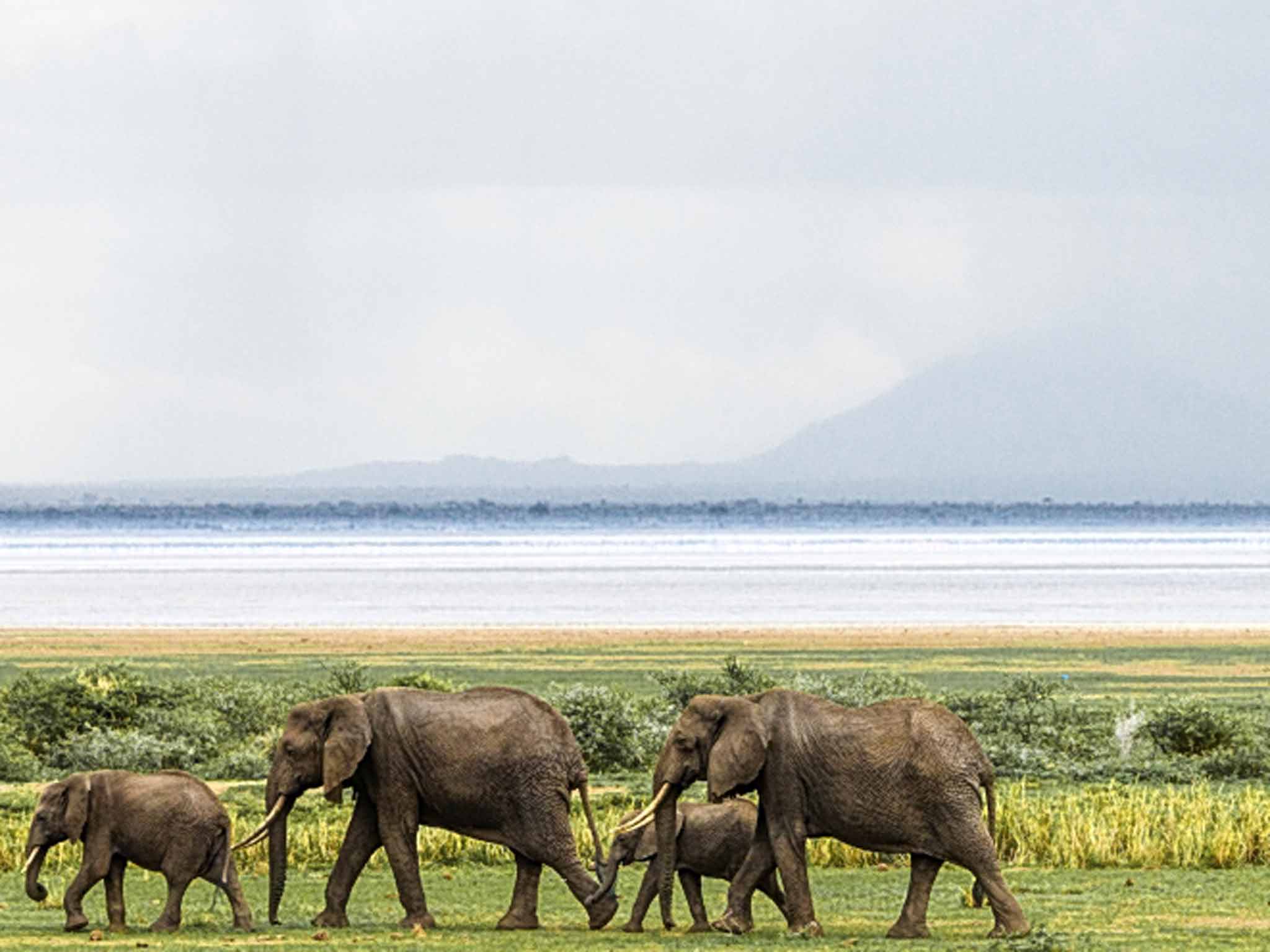Elephant slaughter continues, but so does hope

Your support helps us to tell the story
From reproductive rights to climate change to Big Tech, The Independent is on the ground when the story is developing. Whether it's investigating the financials of Elon Musk's pro-Trump PAC or producing our latest documentary, 'The A Word', which shines a light on the American women fighting for reproductive rights, we know how important it is to parse out the facts from the messaging.
At such a critical moment in US history, we need reporters on the ground. Your donation allows us to keep sending journalists to speak to both sides of the story.
The Independent is trusted by Americans across the entire political spectrum. And unlike many other quality news outlets, we choose not to lock Americans out of our reporting and analysis with paywalls. We believe quality journalism should be available to everyone, paid for by those who can afford it.
Your support makes all the difference.It was one of the worst sights I’ve ever seen. We drove round a clump of mopani bushes, and there it lay: huge, shapeless, inert, with a disgusting mess of dried blood and raw, blackening flesh where the tusks had been hacked carelessly away. The hulk had begun to stink.
Thirty years ago there were 1.3 million elephants in Africa. By 2013 there were 470,000. In 2012, 60 elephants were being slaughtered every single day across the continent. At this rate, in some countries wild elephants could be extinct within a decade.
The demand for ivory in China, Vietnam and Thailand is still growing, fed by groups such as the terrorist organisation al-Shabaab. An ivory poacher gets £65 per kilo; on the streets of China that kilo is worth £1,380. The mark-up is almost as good as heroin.
And yet things aren’t necessarily as hopeless as they seem. This weekend, a “Global March for Elephants and Rhinos” has been taking place in a range of countries. It’s in support of the Elephant Protection Initiative (EPI), the African-led movement founded last year with the backing of the British government and the organisation Stop Ivory. Tanzania, Chad, Gabon, Botswana and Ethiopia are in the forefront of the EPI, and Uganda, Malawi, The Gambia, Kenya and most recently the Republic of Congo have joined. A month ago the EPI’s members, with the backing of Stop Ivory and its head, Alex Rhodes, met in Addis Ababa to take things to a new level.
Eight African countries have now created a full inventory of their ivory stockpiles, to make sure that nothing leaks into the illegal market. Six have destroyed their stockpiles altogether. Four have introduced action plans to protect their elephant populations.
China is clearly feeling uncomfortable about being the world’s leading ivory consumer
The meeting, which created the London Declaration in February 2014, was attended by 40 world leaders, as well as the Prince of Wales, the Duke of Cambridge and Prince Harry. China, which gets a seriously bad press around the world on the ivory issue, was represented at a senior level.
The Duke of Cambridge went to Beijing last spring and made a widely reported speech about the need to stop the ivory trade. In May, the Chinese government announced it would phase out the legal manufacture and sale of ivory products. Last month, it agreed to ban the import and export of ivory. China is clearly feeling increasingly uncomfortable about being the world’s leading ivory consumer.
There’s no single course of action, no one brilliant initiative, that will save the elephants of Africa. It will require untold numbers of summit meetings and unglamorous plenary sessions. It takes brave men and women, few and under-gunned, to fight the poachers.
And it needs the slow grind of moral pressure on countries which are too corrupt or uninterested to act. But the fight-back is under way. Possibly – just possibly – we’ll reach the point where the elephant’s extinction isn’t inevitable in Africa, after all.
Join our commenting forum
Join thought-provoking conversations, follow other Independent readers and see their replies
Comments